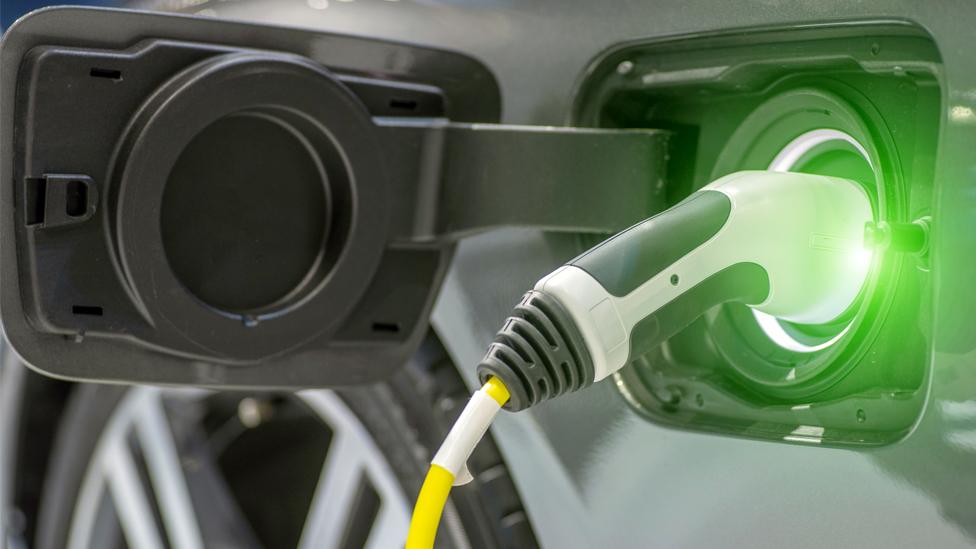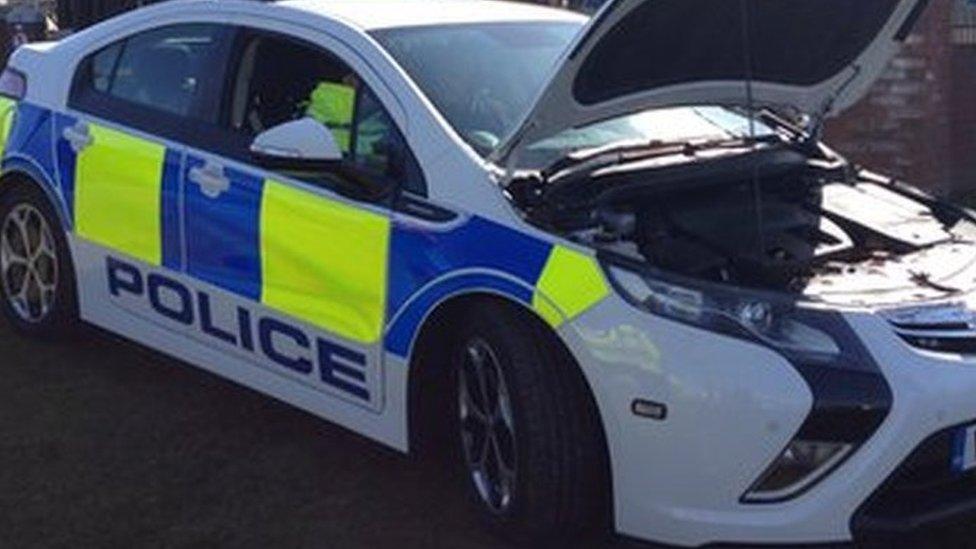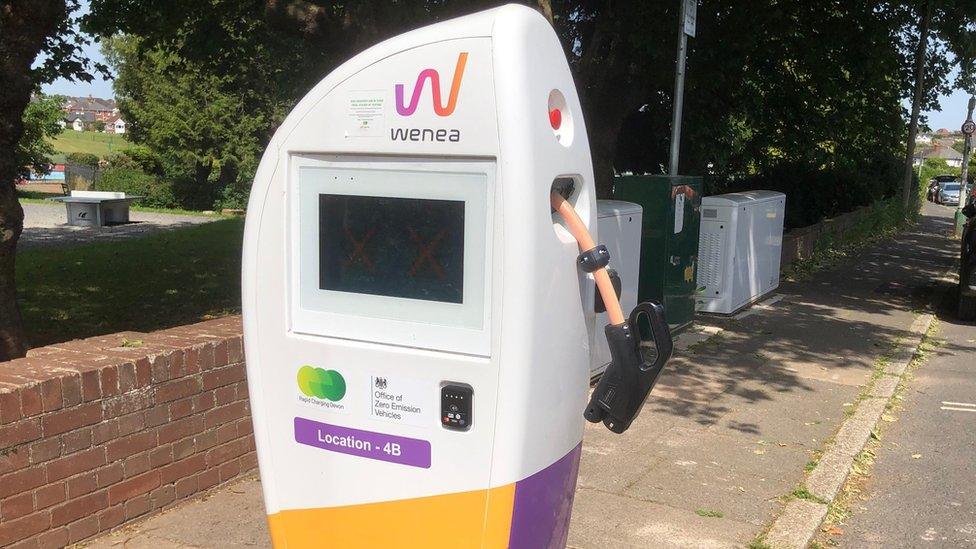Gloucestershire electric on-street car chargers installation
- Published

The Government is due to ban the sale of new petrol and diesel cars and vans from 2030 and the county council plans to roll out its network ahead of this
Plans to install 1,000 on-street electric vehicle charging points over the next three years have been unveiled.
This comes after plans were made to ban the sale of new petrol and diesel cars and vans from 2030.
Gloucestershire County Council aims to prioritise access to charging points for the one third of residents who do not have off-street parking.
The first phase of the installation is expected to focus on more urban areas.
Residents are being asked to give their views on where they think charging points should be located, to help map demand and plan for electric vehicle charging.
However, concerns have been raised over the installation being "not financially viable" as many people cannot afford such vehicles, according to council chiefs.
In a meeting, environment scrutiny committee councillor Chris McFarling spoke of the challenges they are having in the Forest of Dean.
Mr McFarling said: "The set up costs will not be met by the user charges for many, many years and we have to be careful that we target the user that will most likely make use of those charging points.
"Be it residents, or tourists and visitors who support the tourist economy in the Forest of Dean which is quite large."
Ultra low emission vehicles programme manager Steve Lowe told councillors as the second hand market for electric vehicle develops they will be more more affordable and more drivers are expected to buy them.

Follow BBC West on Facebook, external, Twitter, external and Instagram, external. Send your story ideas to: bristol@bbc.co.uk , external
Related topics
- Published5 July 2022

- Published4 July 2022
